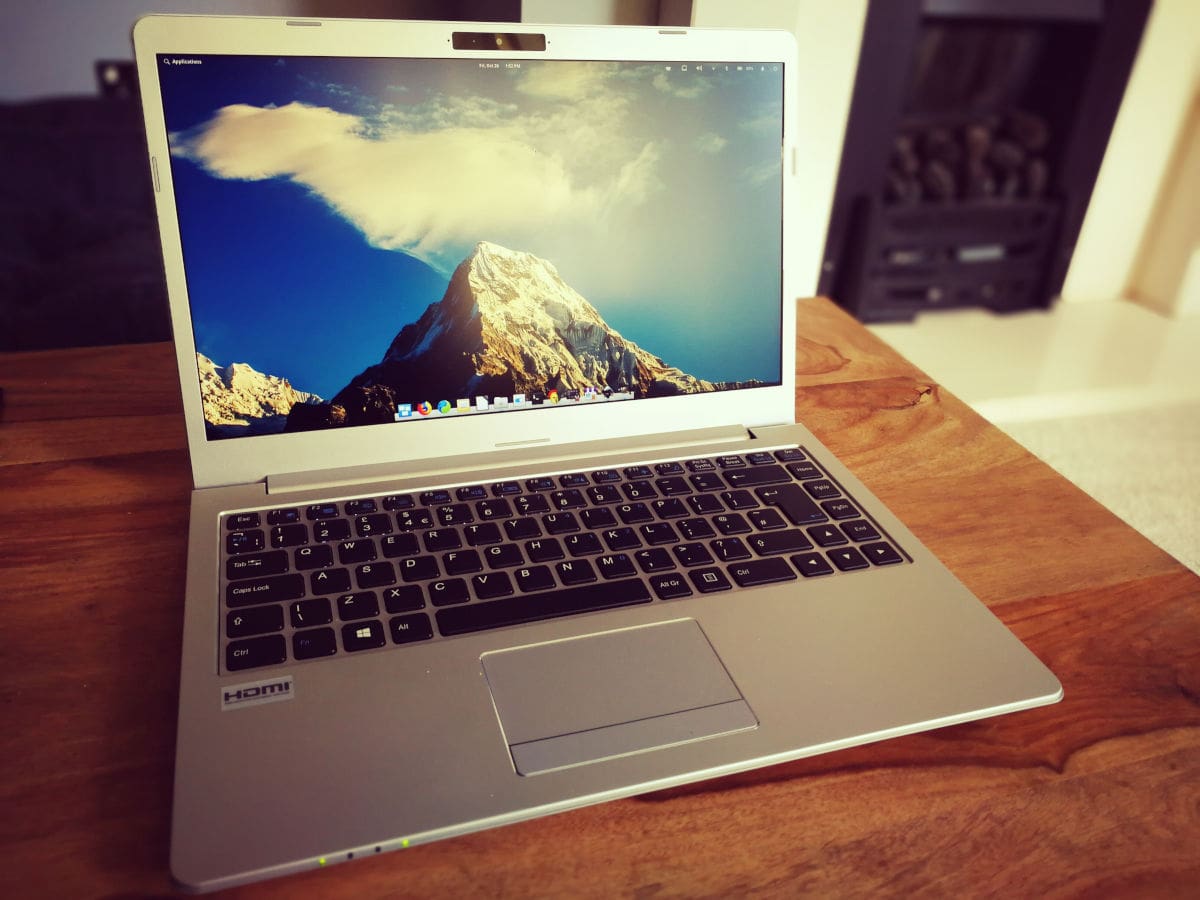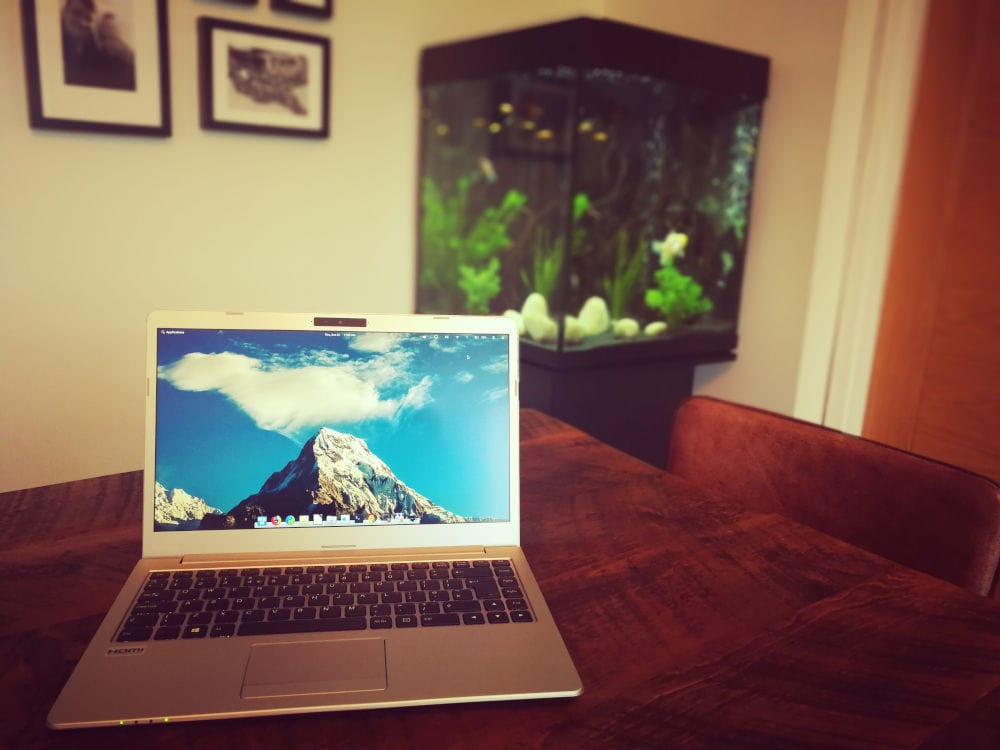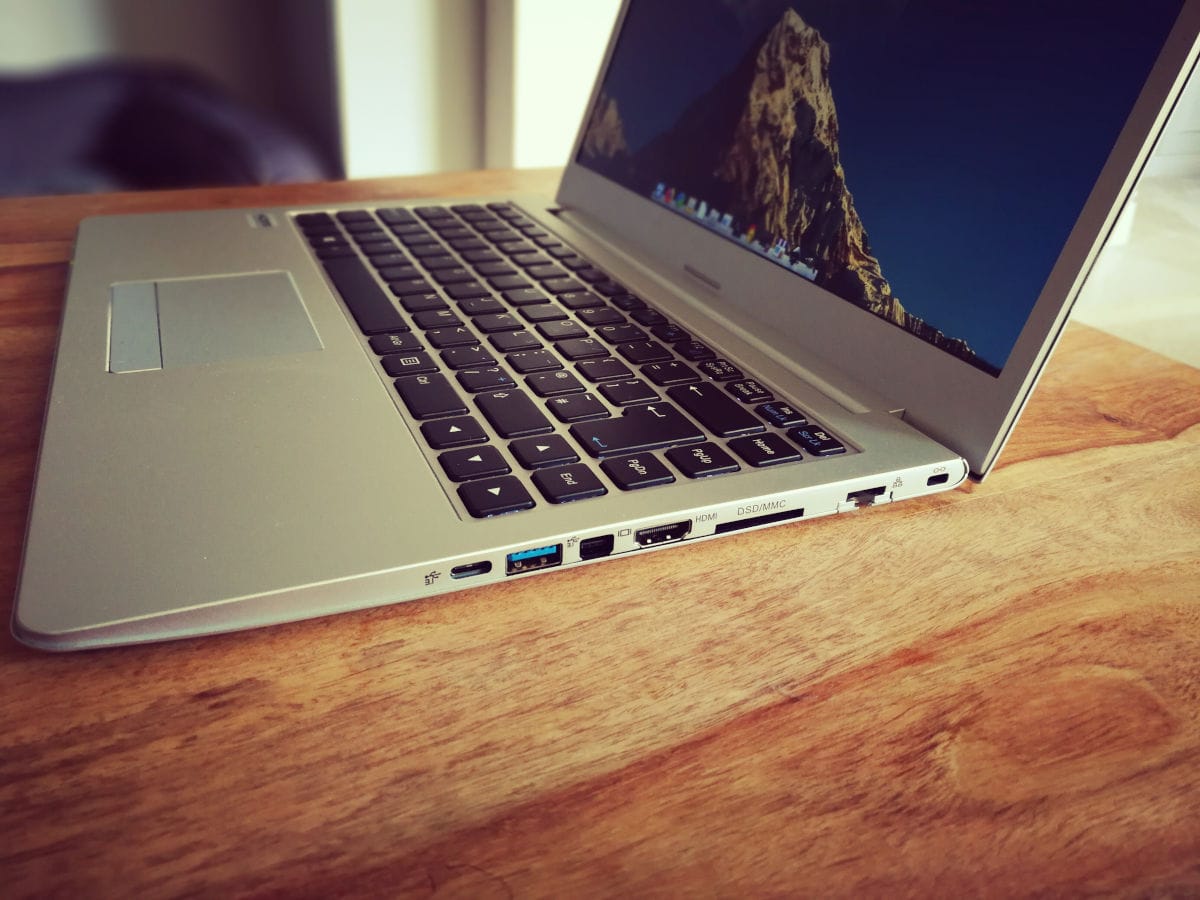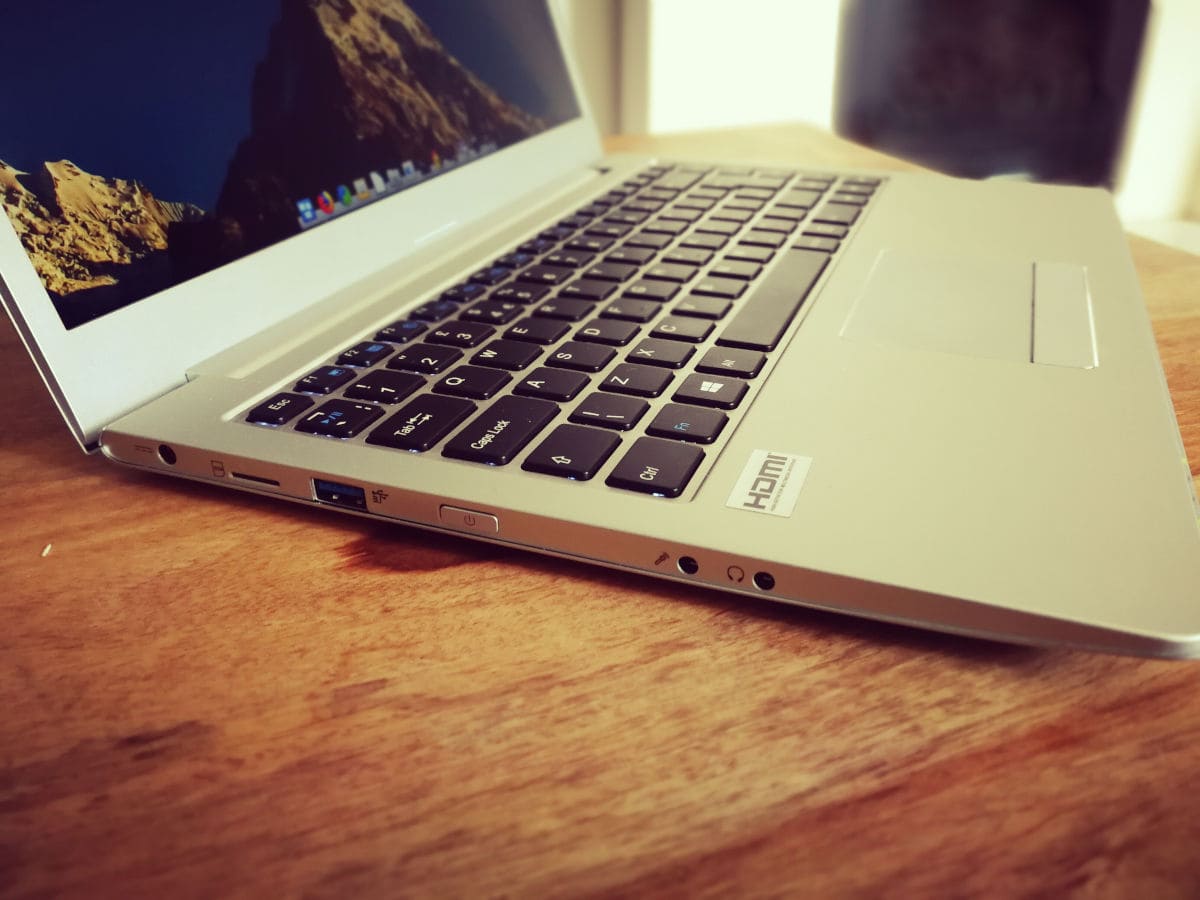Juno Computers Jupiter Laptop Review
27 Oct 2018
The guys over at Juno Computers reached out to me recently to see if I was interested in doing a review of their new Jupiter Laptop. I decided to take them up on their offer, and have spent a few days with the laptop. Here’s my Juno Computers Jupiter laptop review.
About Juno Computers
Juno Computers is a small Linux computer company based in the UK. They have three machines in their line-up, the Jupiter (which this review is about), the slightly lower powered Nyx laptop, and the Olympic mini PC (think Intel Nuc).
All of their machines come bundled with either the latest LTS of Ubuntu, or the latest version of Elementary OS. I like to think of Juno Computers as a fledgling version of companies like System76 or Entroware.
Jupiter’s Hardware
The base version of the Jupiter laptop comes with some really high quality hardware bundled in:
- Intel 8th Gen Core i5-8250U (quad core)
- Intel UHD Graphics 620
- 14″ full HD IPS display
- 8GB RAM
- 128GB SSD
- 2 x USB 3.0
- 1 x USB-C port
- Gigabit Ethernet Port
- 6-in-1 card reader
- HDMI output
- Mini DisplayPort
- 1.0MP webcam
The price of the base version is £698 ($900 approx). There are a number of upgrade options available, such as even more RAM, more storage and a Core i7 CPU upgrade. Fully tricked out the Jupiter costs £1,248 ($1,600 approx). My review unit came with 16GB RAM.
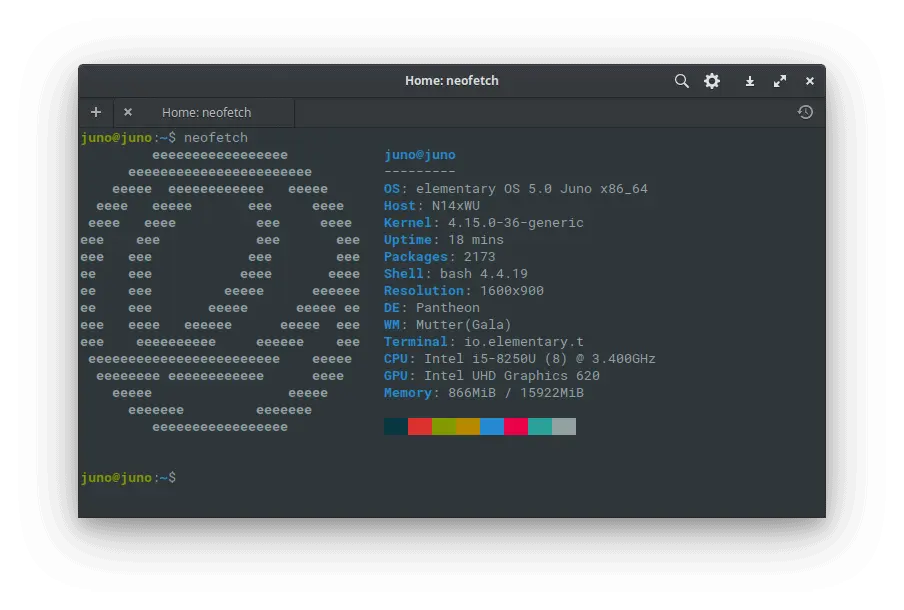
Performance
With the specs above, the Juno Computers Jupiter laptop performed extremely well. At no point did I notice any lag whatsoever and the whole experience was really pleasant.
Look & Feel
The Jupiter laptop is a nice looking piece of kit, although not my cup of tea. Ultrabooks like the X1 Carbon (which I own) and the XPS 13 are much more my thing.
For your money, you get a “silver aluminium chassis” (although to me the case felt plastic but solid) and a well sized backlit keyboard. I’m writing this review on the the Jupiter, and the keyboard is really nice to use. Not quite as good as the keyboard on my X1 Carbon, but the X1 keyboard is by far the best I’ve ever used.
The trackpad is quite small, but I prefer that to the massive ones you get on some laptops. My preference is a smaller trackpad and a larger, better keyboard – which is the case on the Jupiter, I’m glad to say.
I was disappointed that the Jupiter’s keyboard came with a Windows logo on the super key. It would have been great to open the lid and be greeted with a little Tux on the super key. Having said that, the Jupiter did come with an Elementary “e” keyboard sticker.
Whilst using the trackpad, I found it clunky and awkward to use, but I tend to find that with most trackpads; I’m yet to find one that really impresses me. Personal bias aside, it was business as usual with the trackpad with multi-finger gestures being present and correct.
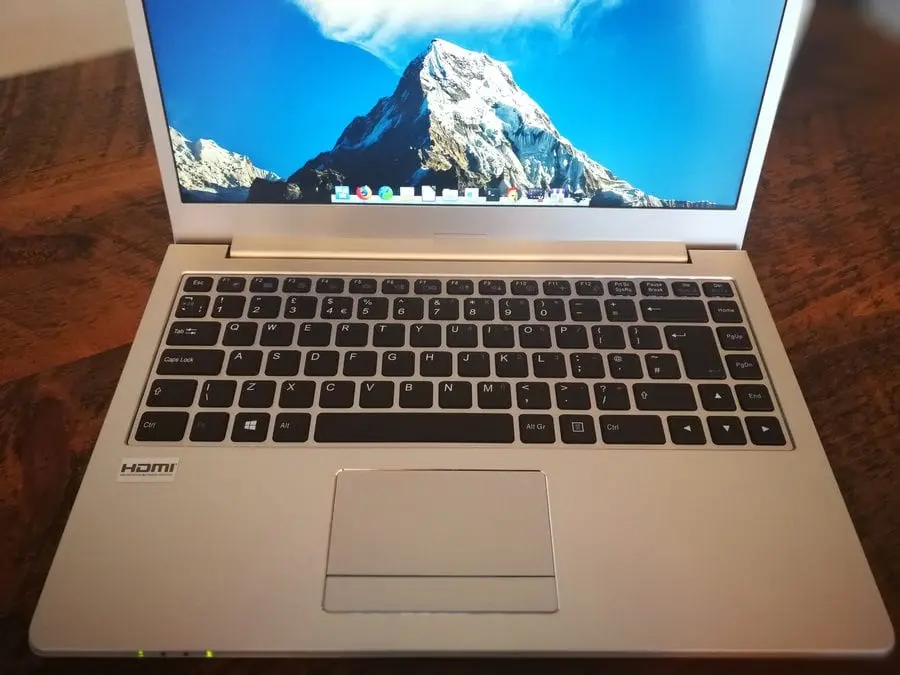
When trying to compare the Jupiter to the competition, I noticed that both the Entroware Apollo and the System76 Galago Pro appear to share the exact same laptop chassis as the Jupiter. With all three set to the same spec as the basic Jupiter laptop, the prices come out as:
- Entroware Apollo – £729 ($935)
- System76 Galago Pro – £700 ($899)
- Juno Jupiter – £698 ($895)
So the Jupiter is cheaper than both Entroware and System76 for what appears to be the exact same machine.
Jupiter’s Software
The Jupiter review unit that I received came bundled with both Ubuntu 18.04.1 and Elementary OS Juno. GRUB decided it would boot to Ubuntu initially, but I’m really not a fan of Gnome Shell, so I didn’t spend much time in there. Most of my time was spent in Elementary OS. I’m not going to go into detail about eOS here, if you want to know more check out my Elementary OS Juno review.
The guys at Juno do add a couple of extra programs by default though; mostly under-the-hood stuff for performance, they also have their own app store, Kronos.

Kronos is a very simple application, but it does have some really useful applications in there. One which I was surprised to see was a Google Drive client. I did find myself using Kronos for many of the application I installed, as most where there.
The Elementary AppCentre is also included in this build of Juno, so you can still get all your Elementary goodies if you wish. The Kronos app simply adds some additional curated apps that the Juno team have picked.
One thing I didn’t like about Kronos was the icon. It looked completely out of place within Elementary OS. Whilst it’s a tiny issue, that lack of attention to detail is where many distributions fail.
![]()
I asked the guys at Juno if Kronos was available for other distros, they said you can add their PPA and install Kronos, but it has not been tested on any distros apart from Ubuntu and Juno.
Try this at your own risk
sudo add-apt-repository ppa:junocomp/juno-apps
sudo apt update
sudo apt install kronos
Overall, I think the additional tweaks and software that the guys over at Juno added have most definitely been for the better. The experience was always buttery smooth, and I’d expect no less from such a high-spec machine running Elementary OS.
I wanted to finish up this review by mentioning some high level good and bad points that I found during my time with the Jupiter laptop.
The Good
- Keyboard – the keyboard is well spaced, has good feedback, and allowed me to touch type with very few mistakes. That’s rare on many 14″ laptops that I’ve used, as most have keyboards that are shoe-horned into the chassis and feel like an afterthought.
- Price – when compared to laptops of a similar spec form other manufacturers, the Jupiter appears to be relatively good value for money.
- Additional software – Kronos is a great little piece of software. There are some right gems in the library that save you having to go hunting.
- Ethernet port – it’s crazy that this is even a positive, but Ethernet ports are rare these days. I was glad to see the Jupiter rockin’ an Ethernet port.
The Bad
- Fan noise – there was a couple of times that I asked the Jupiter to do some heavy lifting. When I did that, the fans kicked in and they are pretty loud. My partner even commented on how loud it was, and she’s usually oblivious to that kind of thing.
- Battery life – On the Juno Computers website, the Jupiter is touted as having 6 hours of battery life. Unfortunately, it came up short for me. I found that even with the powersave option enabled, I could just about hit around 3.5 hours under general usage (writing, browsing etc.)
- Power Button – the power button on the Jupiter did annoy me. For some reason it’s right in the middle of the left hand edge of the device. I found that every time I moved the laptop, or picked it up, I was hitting the power button too.
- Webcam – I found the quality of the webcam to be ok at best. Not a major thing for many people, but I do a lot of telepresence conference calls for my job, so a good webcam is necessary. Like I said, it’s ok, but I would have expected better for a laptop at this price point. Here’s an example in a very bright room (try not to have nightmares):

Conclusion
We’re at over 1200 words now, so I’d better wrap this thing up. I suppose it all boils down to one question:
Would I buy a Juno Computers Jupiter laptop?
No, I wouldn’t. But that’s not because it’s bad device, far from it – it performed really well. For me it boils down to aesthetics – I just didn’t really like the look of it, and that power button would drive me mad.
Obviously this is just my personal opinion, you may think it’s gorgeous. If the guys at Juno released Jupiter 2.0 that came in a better looking chassis, I’d buy one. In terms of hardware, I have no issues with the Jupiter at all.
If you’re looking for a laptop that performs extremely well, is well priced and will run Linux with no issues, the Jupiter is worth some serious consideration.
If you’re interested in taking a look at what Jupiter Computers have to offer, go take a look at their website – https://junocomputers.com; and if you decide to make a purchase, make sure you tell them that I sent you there. ?
Disclaimer: The Jupiter laptop that was sent to me was a loan device for review purposes only. I did not pay for the device, nor did I get to keep the device. I was NOT compensated in any way for this review, this is an honest review and all thoughts are my own.
Gallery
